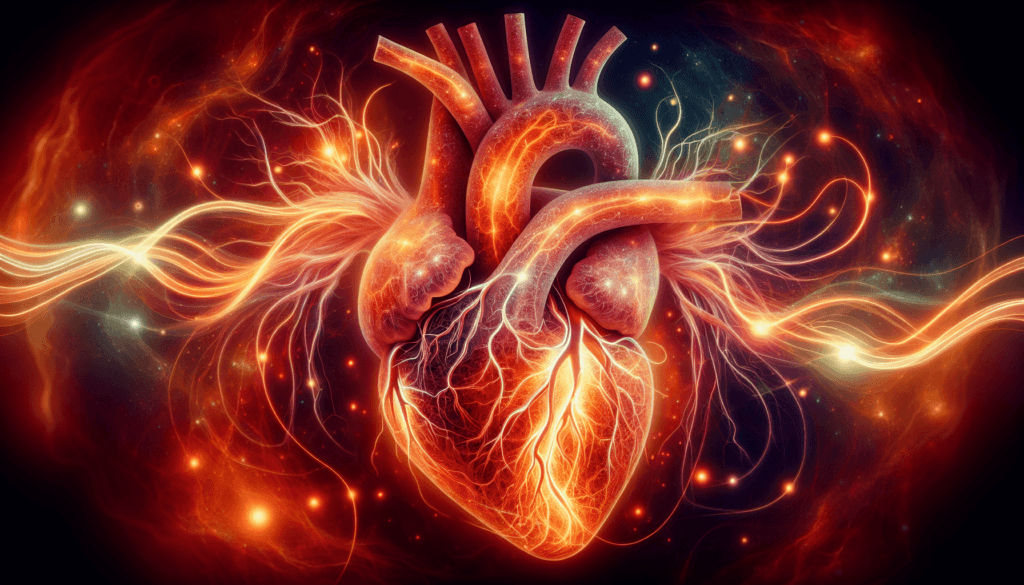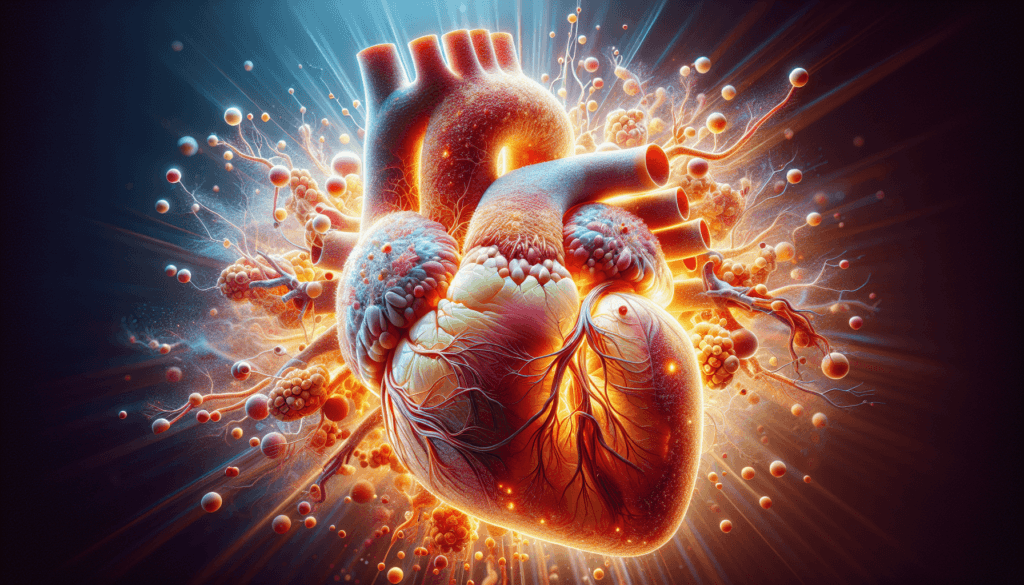Do you ever wonder which hormone in your body is the most important? Hormones are these incredible chemical messengers that your body uses to communicate with itself. They are produced by glands in the endocrine system and travel through the bloodstream to tissues and organs, influencing countless physiological processes and behaviors. From growth and metabolism to mood regulation and reproductive health, hormones play pivotal roles in maintaining the complex machinery that is the human body.

Understanding Hormones and Their Functions
In your body, there’s a bustling network of hormones, each contributing uniquely to keep everything running smoothly. To appreciate their roles, let’s first break down what hormones are and how they operate. Hormones are produced by glands in the endocrine system, such as the pituitary, thyroid, and adrenal glands, among others. Once released, they travel through your bloodstream, binding to specific receptors in target tissues to trigger a response. It’s a highly orchestrated process, ensuring everything from growth and metabolism to mood and immune function is fine-tuned.
The Diversity of Hormones
Table of Contents
To get a clearer picture, let’s look at some key hormones and what they do. The human body is home to an astonishing variety of hormones, each with distinct roles:
- Growth Hormone: As the name implies, it is crucial for physical growth. Beyond childhood, it helps maintain muscle mass and bone density.
- Insulin: This hormone is essential for regulating blood sugar levels. It allows cells to absorb glucose, providing energy for your daily activities.
- Cortisol: Often called the stress hormone, cortisol helps your body respond to stress. It’s also vital for metabolism and immune response.
- Thyroid Hormones (T3 and T4): These regulate metabolism, affecting how your body burns energy.
- Adrenaline and Noradrenaline: These are part of the body’s fight-or-flight response, preparing you for action in stressful situations.
The Importance of Hormones in Daily Life
Hormones are silent yet potent influencers of your day-to-day life. Picture waking up, and as you open your eyes, cortisol levels naturally rise to give you a boost of wakefulness. Throughout the day, insulin regulates energy by balancing blood sugar. When you encounter a stressful situation, adrenaline kicks in, heightening your senses and preparing you for action. These examples are just the tip of the iceberg, illustrating how hormones intricately guide your moods, energy levels, and overall health.
Exploring the Most Important Hormone
Amidst this intricate hormone orchestra, pinpointing a single “most important” hormone is challenging because each hormone has its own critical functions. However, insulin often stands out due to its vital role in maintaining life-essential processes.
Insulin: The Master Regulator
Insulin takes center stage in metabolic function by regulating blood glucose levels, ensuring cells receive the energy they need. When you eat, your blood sugar levels rise, prompting your pancreas to release insulin. This hormone allows cells to absorb glucose, which is metabolized for energy. Without insulin, or if it doesn’t function properly, you would face serious health challenges, such as those seen in diabetes.
Diabetes: The Consequence of Insulin Dysregulation
Diabetes exemplifies the dramatic effects of insulin dysfunction. In Type 1 diabetes, the immune system destroys insulin-producing cells, while in Type 2 diabetes, cells become resistant to insulin’s effects. Both conditions lead to high blood sugar levels, affecting overall health and increasing the risk of complications like heart disease, nerve damage, and vision loss. This highlights insulin’s critical role and underscores why some might consider it the most important hormone.
Other Vital Hormones in the Human Body
Though insulin plays a critical role, it’s by no means the only essential hormone. Let’s explore other key players that contribute significantly to your overall well-being.
Thyroid Hormones: Regulating Metabolism
The thyroid gland produces hormones like thyroxine (T4) and triiodothyronine (T3) that regulate metabolism, controlling how quickly or slowly your body converts food into energy. Imbalances can lead to conditions such as hypothyroidism (slowed metabolism, weight gain) or hyperthyroidism (increased metabolism, weight loss), demonstrating their vital role in maintaining metabolic homeostasis.
Cortisol: The Stress Hormone
Produced by the adrenal glands, cortisol helps your body respond to stress by increasing blood sugar, enhancing brain function, and maintaining inflammation. Chronic stress causes prolonged cortisol elevation, which can interfere with body functions, leading to health issues like anxiety, depression, and chronic fatigue.
Estrogen and Testosterone: The Reproductive Hormones
Estrogen and testosterone are key in sexual development and reproductive processes. Estrogen, predominant in females, influences menstrual cycles and fertility, whereas testosterone, predominant in males, affects muscle and bone mass, as well as libido. Balanced hormone levels are crucial for reproductive health and overall well-being.
Oxytocin: The Bonding Hormone
Often called the “love hormone,” oxytocin plays a role in social bonding, sexual reproduction, childbirth, and the period after childbirth. It strengthens the emotional connection between partners and reinforces the maternal bond with offspring. Oxytocin’s influence extends beyond personal relationships, affecting social dynamics and emotional well-being.
Balancing Hormones for Optimal Health
Given the influential role hormones play, maintaining hormonal balance is paramount for optimal health. Imbalances can lead to various health issues, affecting physical and mental well-being. Here are a few strategies to help maintain healthy hormonal balance:
Nutrition and Diet
A balanced diet rich in whole foods, lean proteins, healthy fats, and fiber supports hormone production and function. Specific nutrients such as omega-3 fatty acids, magnesium, and vitamin D can particularly benefit hormonal health.
Regular Exercise
Consistent physical activity impacts hormone levels positively. Exercise helps regulate insulin levels and increases endorphins, which are feel-good hormones that can enhance mood and reduce stress.
Stress Management
Given the impact of stress on hormones, managing stress through activities like yoga, meditation, or even simple breathing exercises can help maintain cortisol levels and promote overall balance.
Adequate Sleep
Quality sleep is essential for hormonal regulation. Sleep deprivation can disrupt hormone production and balance, particularly impacting stress hormones, hunger hormones, and insulin sensitivity.
Professional Guidance
Consulting healthcare professionals for regular check-ups and paying attention to your body’s signals can help in early detection and management of any hormonal imbalances. Treatments may involve medication, lifestyle adjustments, or hormone therapy, depending on individual needs.

Conclusion
In the grand scheme of things, your body’s hormone system operates as a sophisticated symphony. Each hormone, whether it’s insulin orchestrating metabolism or oxytocin fostering bonds, has its own section within an intricate score, contributing to the harmony of your physiological functions. While identifying a single “most important” hormone might be an impossible task, understanding their individual and collective roles can empower you to make informed lifestyle choices, fostering better health and well-being. Hormones, in their quiet but potent influence, remind you that balance in your body’s biochemistry is key to living a vibrant and healthy life.




